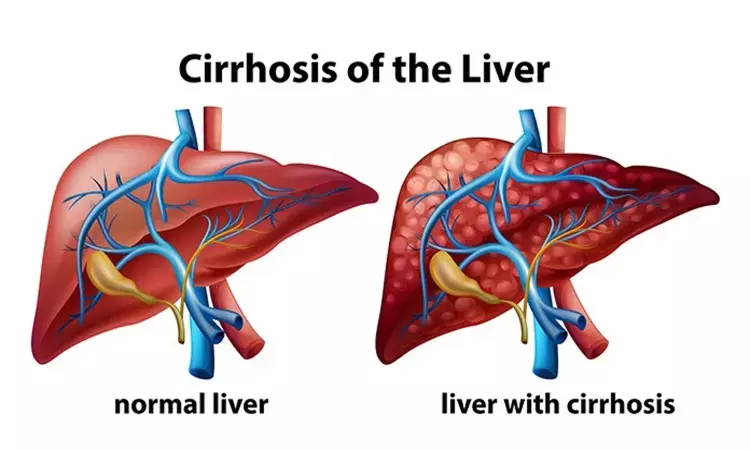- Home
- Medical news & Guidelines
- Anesthesiology
- Cardiology and CTVS
- Critical Care
- Dentistry
- Dermatology
- Diabetes and Endocrinology
- ENT
- Gastroenterology
- Medicine
- Nephrology
- Neurology
- Obstretics-Gynaecology
- Oncology
- Ophthalmology
- Orthopaedics
- Pediatrics-Neonatology
- Psychiatry
- Pulmonology
- Radiology
- Surgery
- Urology
- Laboratory Medicine
- Diet
- Nursing
- Paramedical
- Physiotherapy
- Health news
- Fact Check
- Bone Health Fact Check
- Brain Health Fact Check
- Cancer Related Fact Check
- Child Care Fact Check
- Dental and oral health fact check
- Diabetes and metabolic health fact check
- Diet and Nutrition Fact Check
- Eye and ENT Care Fact Check
- Fitness fact check
- Gut health fact check
- Heart health fact check
- Kidney health fact check
- Medical education fact check
- Men's health fact check
- Respiratory fact check
- Skin and hair care fact check
- Vaccine and Immunization fact check
- Women's health fact check
- AYUSH
- State News
- Andaman and Nicobar Islands
- Andhra Pradesh
- Arunachal Pradesh
- Assam
- Bihar
- Chandigarh
- Chattisgarh
- Dadra and Nagar Haveli
- Daman and Diu
- Delhi
- Goa
- Gujarat
- Haryana
- Himachal Pradesh
- Jammu & Kashmir
- Jharkhand
- Karnataka
- Kerala
- Ladakh
- Lakshadweep
- Madhya Pradesh
- Maharashtra
- Manipur
- Meghalaya
- Mizoram
- Nagaland
- Odisha
- Puducherry
- Punjab
- Rajasthan
- Sikkim
- Tamil Nadu
- Telangana
- Tripura
- Uttar Pradesh
- Uttrakhand
- West Bengal
- Medical Education
- Industry
Weight loss, Diabetes control, Coffee intake tied to lower risk of Cirrhosis: Study

The relationship between alcohol intake and cirrhosis has been recognized since the late eighteenth century. Inspite of such well documented association, recent researches have shown that only a minority of high-risk drinkers develop cirrhosis.
Variation in susceptibility may be due to genetic variation and/or presence of other environmental and lifestyle risk factors, which increase the probability of liver damage. Apart from alcohol intake and sex, obesity (also associated with nonalcoholic liver disease) has the strongest evidence for increasing risk of alcohol-related cirrhosis.
In a recent development researchers have pointed out that, significant associations exist between the family history of liver disease; diabetes and obesity; tea, coffee, wine, and cannabis consumption; and risk of cirrhosis. The team further confirmed that Sustained high alcohol intake is necessary but not sufficient to produce alcohol-related cirrhosis. Identification of risk factors, apart from lifetime alcohol exposure, would assist in discovery of mechanisms and prediction of risk , they suggested.
The GenomALC Consortium (24) was initiated to gather data and samples for identification of risk factors for alcohol-related cirrhosis, including a case-control genetic association study.
Researchers conducted a multicenter case-control study (GenomALC) comparing 1,293 cases (with alcohol-related cirrhosis, 75.6% male) and 754 controls (with equivalent alcohol exposure but no evidence of liver disease, 73.6% male). Information confirming or excluding cirrhosis, and on alcohol intake and other potential risk factors, was obtained from clinical records and by interview. Case-control differences in risk factors discovered in the GenomALC participants were validated using similar data from 407 cases and 6,573 controls from UK Biobank.
Data analysis revealed the following facts.
- The GenomALC case and control groups reported similar lifetime alcohol intake (1,374 vs 1,412 kg). Cases had a higher prevalence of diabetes (20.5% (262/1,288) vs 6.5% (48/734), P = 2.27 × 10−18) and higher premorbid body mass index (26.37 ± 0.16 kg/m2) than controls (24.44 ± 0.18 kg/m2, P = 5.77 × 10−15).
- Controls were significantly more likely to have been wine drinkers, coffee drinkers, smokers, and cannabis users than cases.
- Cases reported a higher proportion of parents who died of liver disease than controls (odds ratio 2.25 95% confidence interval 1.55–3.26).
- Data from UK Biobank confirmed these findings for diabetes, body mass index, proportion of alcohol as wine, and coffee consumption.
"If these relationships are causal, measures such as weight loss, intensive treatment of diabetes or prediabetic states, and coffee consumption should reduce the risk of alcohol-related cirrhosis."concluded the team.
For full article follow the link: doi: 10.14309/ajg.0000000000000833
Primary source: The American Journal of Gastroenterology
Dr Satabdi Saha (BDS, MDS) is a practicing pediatric dentist with a keen interest in new medical researches and updates. She has completed her BDS from North Bengal Dental College ,Darjeeling. Then she went on to secure an ALL INDIA NEET PG rank and completed her MDS from the first dental college in the country – Dr R. Ahmed Dental College and Hospital. She is currently attached to The Marwari Relief Society Hospital as a consultant along with private practice of 2 years. She has published scientific papers in national and international journals. Her strong passion of sharing knowledge with the medical fraternity has motivated her to be a part of Medical Dialogues.
Dr Kamal Kant Kohli-MBBS, DTCD- a chest specialist with more than 30 years of practice and a flair for writing clinical articles, Dr Kamal Kant Kohli joined Medical Dialogues as a Chief Editor of Medical News. Besides writing articles, as an editor, he proofreads and verifies all the medical content published on Medical Dialogues including those coming from journals, studies,medical conferences,guidelines etc. Email: drkohli@medicaldialogues.in. Contact no. 011-43720751


